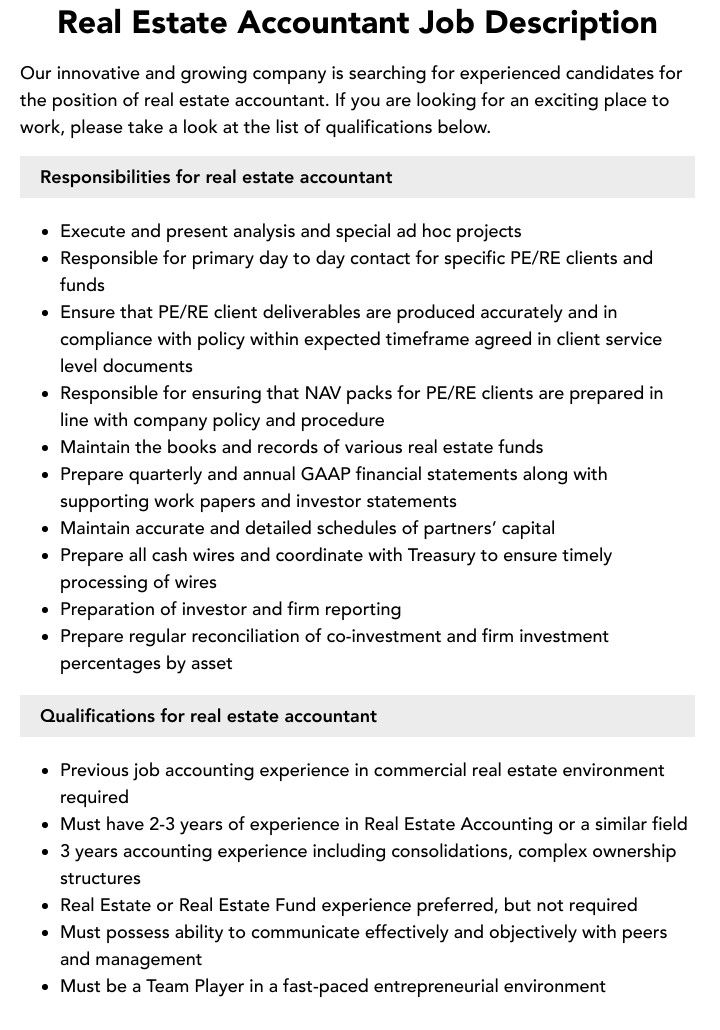Why Property Owners Trust Real Estate Tax Services for Smart Tax Planning
Wiki Article
Recognizing the Significance of Building And Construction Accounting in the Building & Property Industry
In the construction and real estate sector, the relevance of construction accounting can not be overemphasized; it serves as a cornerstone for attaining monetary success and operational performance. Checking out these nuances discloses important insights that can reshape how sector gamers approach their economic monitoring approaches.Trick Concepts of Building And Construction Accountancy
Recognizing the special financial landscape of the building and construction market calls for a solid grasp of vital principles of construction accounting. Construction & Real Estate. At its core, building accounting varies significantly from conventional audit methods because of the intricacies integral in project-based operations. One essential concept is task costing, which requires tracking all expenses associated with individual jobs. This makes it possible for specialists to analyze success properly and manage budget plans properly.An additional important principle is using development invoicing, which enables contractors to receive settlements based on the portion of work completed. This method assists keep capital throughout the job period, essential for operational security. In addition, understanding income recognition is crucial; the percentage-of-completion method is commonly made use of to straighten revenue with job turning points, showing the project's economic truth.
In addition, building and construction bookkeeping stresses the significance of accurate projecting and budgeting, as tasks commonly cross a number of months or years. Effective project administration devices and software program can help in keeping an eye on financial efficiency, making certain that all stakeholders have visibility right into the job's monetary health and wellness. Grasping these concepts furnishes building companies to browse their one-of-a-kind monetary challenges and optimize their operational performance.
Difficulties Unique to Building Tasks
What difficulties do building projects face that set them apart from other sectors? One considerable obstacle is the integral complexity of building and construction jobs, which typically include numerous stakeholders, including service providers, subcontractors, customers, and vendors. Each event may have various priorities and timelines, leading to sychronisation troubles that can affect project shipment.In addition, construction tasks are vulnerable to changes in product prices and labor availability, which can disrupt budgets and routines. Weather likewise posture an unique challenge, as unforeseen delays can cause raised costs and prolonged timelines. Governing compliance and permitting processes differ by area, including an additional layer of complexity that must be navigated meticulously.
One more unique hurdle is the project lifecycle, identified by stages such as layout, construction, bargain, and purchase. Each stage needs precise preparation and economic monitoring to guarantee resource allotment straightens with task objectives. The capacity for modification orders and range alterations further complicates financial monitoring, requiring robust audit methods to maintain profitability.
Last but not least, the market often grapples with cash money flow concerns, as repayments are typically contingent upon project landmarks. This can strain economic sources, making efficient construction accountancy vital to overcoming these difficulties.

Advantages of Accurate Financial Tracking
Accurate economic monitoring acts as a cornerstone for effective building project monitoring, especially due to the special challenges encountered by the market. By maintaining specific monetary documents, building companies can boost decision-making procedures, permitting managers to allocate sources efficiently and react swiftly to financial constraints.Among the essential benefits of precise monetary monitoring is enhanced capital monitoring. Understanding when cash is due from customers and when repayments to suppliers are called for aids prevent money shortages, making sure projects stay on timetable. It allows companies to recognize discrepancies early, alleviating the threat of budget overruns.
Furthermore, precise economic data assists in reliable project forecasting. By examining previous financial performance, firms can make informed price quotes for future tasks, decreasing the probability of unforeseen costs. This foresight likewise assists in establishing competitive bids, as companies can provide even more accurate pricing to clients.
Finally, exact monetary tracking boosts conformity with governing needs and contractual responsibilities. By systematically recording incomes and expenditures, building companies can quickly produce necessary records for audits, shielding themselves against potential legal disputes. In summary, exact monetary tracking is important for fostering financial stability and promoting long-lasting success in the building industry.

Important Tools and Software Program
How can building and construction business effectively handle their financial information in a progressively complex landscape? Construction accounting software program offers durable solutions for monitoring expenses, handling spending plans, and producing economic reports.Popular building bookkeeping tools, such as Sage 300 Building and Real Estate, Perspective Panorama, and copyright Professional, deal features that assist in project-based accountancy. These systems allow real-time monitoring of task expenses, payroll processing, and invoicing, permitting better financial exposure and control. In addition, cloud-based solutions supply the benefit of remote access, guaranteeing that stakeholders can work together properly regardless of their place.
Incorporating task management software application with accountancy devices further enhances operational effectiveness. This combination enables smooth information sharing, reducing the possibility of errors and enhancing decision-making. Eventually, picking the appropriate mix of important tools and software application is crucial for construction business aiming to enhance their monetary administration and sustain growth in an open market.
Best Practices for Construction Bookkeeping
Effective financial management in construction bookkeeping hinges on the application of finest practices that foster precision and openness. One core concept is the use of specific building bookkeeping software, Construction CPA Accounting Firm which improves processes such as payroll, work, and payment costing. This modern technology not only reduces mistakes yet likewise enhances reporting capabilities.Another important technique is preserving precise documents. Keeping in-depth records of agreements, modification orders, and billings ensures that all purchases are verifiable and deducible. When disagreements occur., this degree of paperwork is particularly crucial throughout audits or.
Routine economic evaluations and settlements also add considerably to reliable construction bookkeeping. By regularly comparing actual prices to allocated amounts, companies can recognize variances promptly and adjust their methods as necessary. Establishing a clear graph of accounts tailored to the particular demands of the construction industry further help in organizing monetary information, permitting more insightful analysis.
Final Thought
In conclusion, building accounting functions as a critical component in the building and realty sector, facilitating efficient economic monitoring and project success. By sticking to key concepts and utilizing important devices, firms can navigate the special difficulties of building and construction tasks while profiting of exact financial tracking. Executing finest methods not just improves earnings and money circulation administration however additionally makes certain conformity with governing criteria, inevitably cultivating lasting development within an affordable landscape.
In the construction and genuine estate industry, the importance of construction audit can not be overemphasized; it serves as a foundation for achieving economic success and operational efficiency.Recognizing the special monetary landscape of the construction sector needs a firm understanding of crucial principles of building and construction accounting. In summary, accurate monetary tracking is important for fostering monetary security and promoting long-term success in the building and construction industry.

Report this wiki page